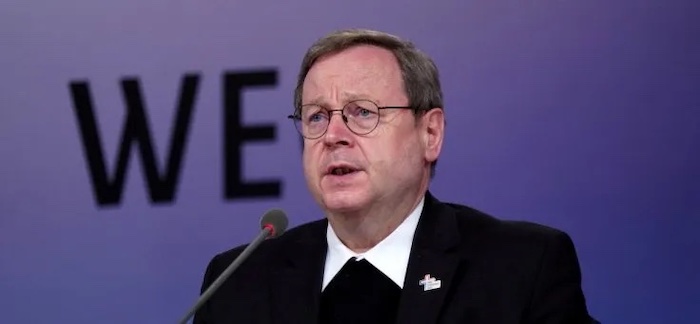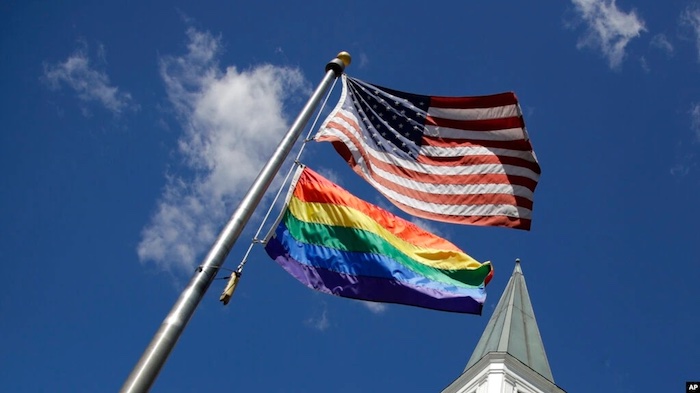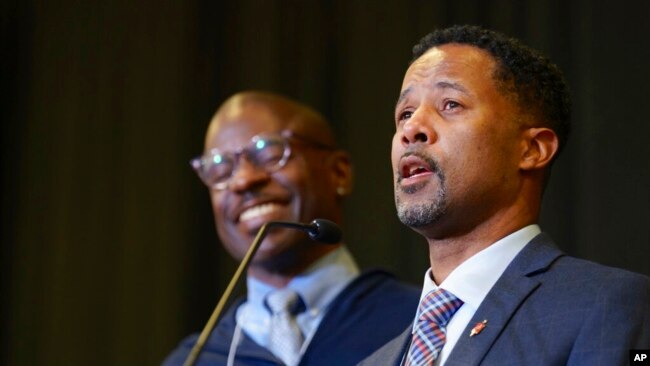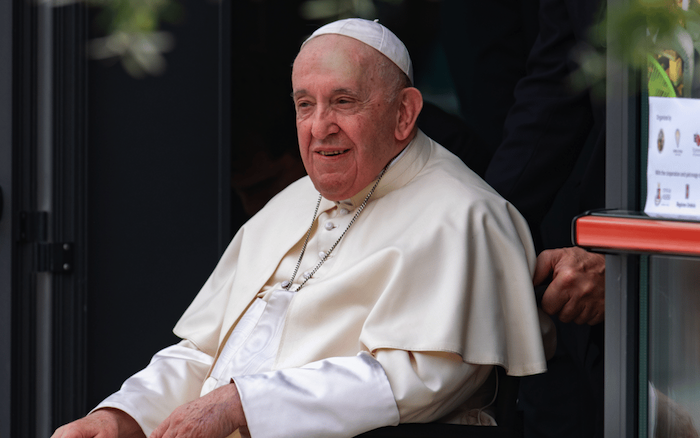— The Catholic Church in Germany is changing to allow gays and divorcees to join its workforce of 800,000. But the reform does not go far enough for everyone.

by Christoph Strack
It’s an issue that affected the head doctor of a Catholic hospital, who was divorced and wanted to remarry; and the director of a church-run kindergarten, who entered into a same-sex partnership.
Both were dismissed by their employer, the Catholic Church in Germany. That sparked outrage among many German Catholics, who felt the church line made it look hard-hearted and at odds with today’s social norms.
Now, after repeated consultations, Catholic bishops in the country have decided to liberalize regulations covering the approximately 800,000 people who work for the Catholic Church in Germany.
“The core area of private life, in particular relationship life and the intimate sphere, remains separate from legal evaluations,” the announcement stated. In other words, what happens in employees’ bedrooms is outside the Church’s remit.

More liberal labor laws
The two major churches in Germany, Catholic and Protestant, form the country’s second largest employer after the public authorities. Together, they employ about 1.3 million people, and have their own church labor laws.
But why does the Catholic Church have the right to set its own guidelines for employees in the first place? This is set out in Germany’s constitution, the Basic Law, which grants religious and ideological communities extensive self-determination, including in service or labor law. In past decades, none of the major political parties in Germany wanted to restrict or abolish these provisions of the Basic Law.
That makes it noteworthy that the Catholic bishops are now changing important aspects of their labor laws of their own accord. The pressure came from employees and potential employees, for whom the Church had become an unattractive employer.
Above all, pressure grew from the Church’s base in Germany. Last year, Catholic Church workers caused a stir with an initiative entitled #OutInChurch, which earned support from many church organizations, politicians, and other social groups.
Church employees, including the clergy, came out as queer and pushed for recognition. Many risked losing their jobs, which is why some chose to remain anonymous. But the mood was changing. Some bishops also expressed respect for the initiative and announced that they would no longer fire anyone in their diocese because of their sexual orientation.
The Church’s ‘reform engine’
The “synodal path,” an assembly of lay people and bishops still working to confront abuse scandals and bring the Church closer to contemporary society, discussed the topic and made new demands regarding church labor law. Marc Frings, secretary general of the highest Catholic lay body, the Central Committee of German Catholics (ZdK), described the “synodal path” as “the engine of urgently needed reforms.”
Now many in the Church are eager to see how implementation will take place. The Bishops’ Conference can decide on a new labor law, and each individual bishop in the 27 dioceses is responsible for implementing — or ignoring — the rules in his diocese. Experts believe that several more conservative bishops might refrain from implementing it.
Among the dioceses that promptly announced they would stand behind the new labor law were Cardinal Rainer Maria Woelki’s Archdiocese of Cologne and Bishop Stefan Oster’s Diocese of Passau. Other dioceses, such as Regensburg and Augsburg in Bavaria, have been more reticent.
‘Discrimination remains’
Not everyone has joined the jubilation over the bishops’ change of heart. Würzburg University Pastor Burkhard Hose, for example, still sees “a lot of room for episcopal arbitrariness.” The new labor law, for example, states that “anti-clerical behavior” can be grounds for dismissal, but it does not specify what this might mean, leaving each bishop to interpret it for himself.

Jens Ehebrecht-Zumsande, an employee in the Archdiocese of Hamburg and, along with Hose, one of the initiators of the #OutInChurch campaign, has criticized the fact that the new guidelines are based on a “binary gender model …. according to which there are only women and men.” Trans or non-binary people have not been taken into account, he argued.
The German government’s anti-discrimination commissioner, Ferda Ataman, also weighed in, calling for the abolition of all exemptions, except for the clergy. Only that, she said, would protect people like the doctor or the kindergarten teacher who, even under the new regulation, may be fired if they leave the Church.
In general, the federal government lets the actions of the churches pass with little comment.
For Marc Frings, the new labor law is an encouragement for the laity within the churches. He says it is evident from the new labor law “that change and reform come from below.”
Without the #OutInChurch campaign and “engaged Catholic civil society,” we would not be at the current stage of reform, he argues. “This is how we learn that our actions and discussions can have immediate consequences,” he said.
Further reform issues are awaiting action in March 2023, when a final round of the “synodal path” will address, among other things, the demand for equal rights for men and women in the Church.
Complete Article ↪HERE↩!





